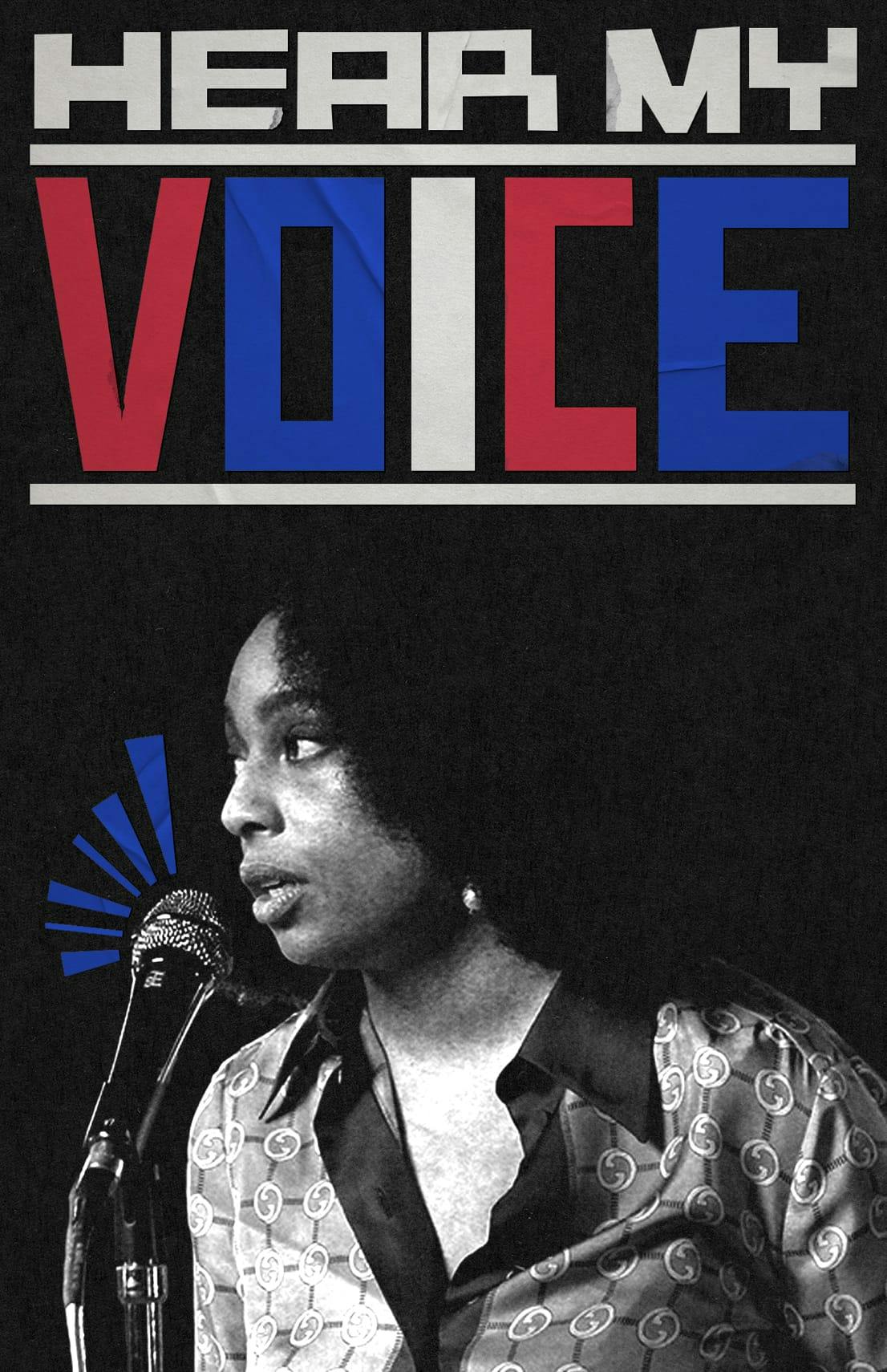Without once meeting in person, composer Daniel Pemberton and singer-songwriter Celeste crafted “Hear My Voice,” the The Trial of the Chicago 7’s stunning final song.
When Aaron Sorkin was preparing to shoot The Trial of the Chicago 7, he was only able to meet with composer Daniel Pemberton once before the COVID-19 lockdown began. Fortunately, the two had recently collaborated on Molly’s Game, so they already had a rhythm. Inspired by the film’s subject matter — the 1968 demonstrations at the Democratic National Convention and their chaotic aftermath — Pemberton also had a title in mind for an original song to accompany his score: “Hear My Voice.”
It wasn’t until Pemberton reached out to British singer-songwriter Celeste that he was able to fully realize The Chicago 7’s score and the soaring track that closes out the film. Though they were rarely in the same room, the two wrote the song from their respective homes last April. It was around that time that Elton John was first introduced to Celeste’s sound via an early cut of her debut album, Not Your Muse, and he was immediately smitten. This February, John Zoomed with Pemberton and Celeste just after Celeste performed their song on The Late Show with Stephen Colbert from Abbey Road Studios.
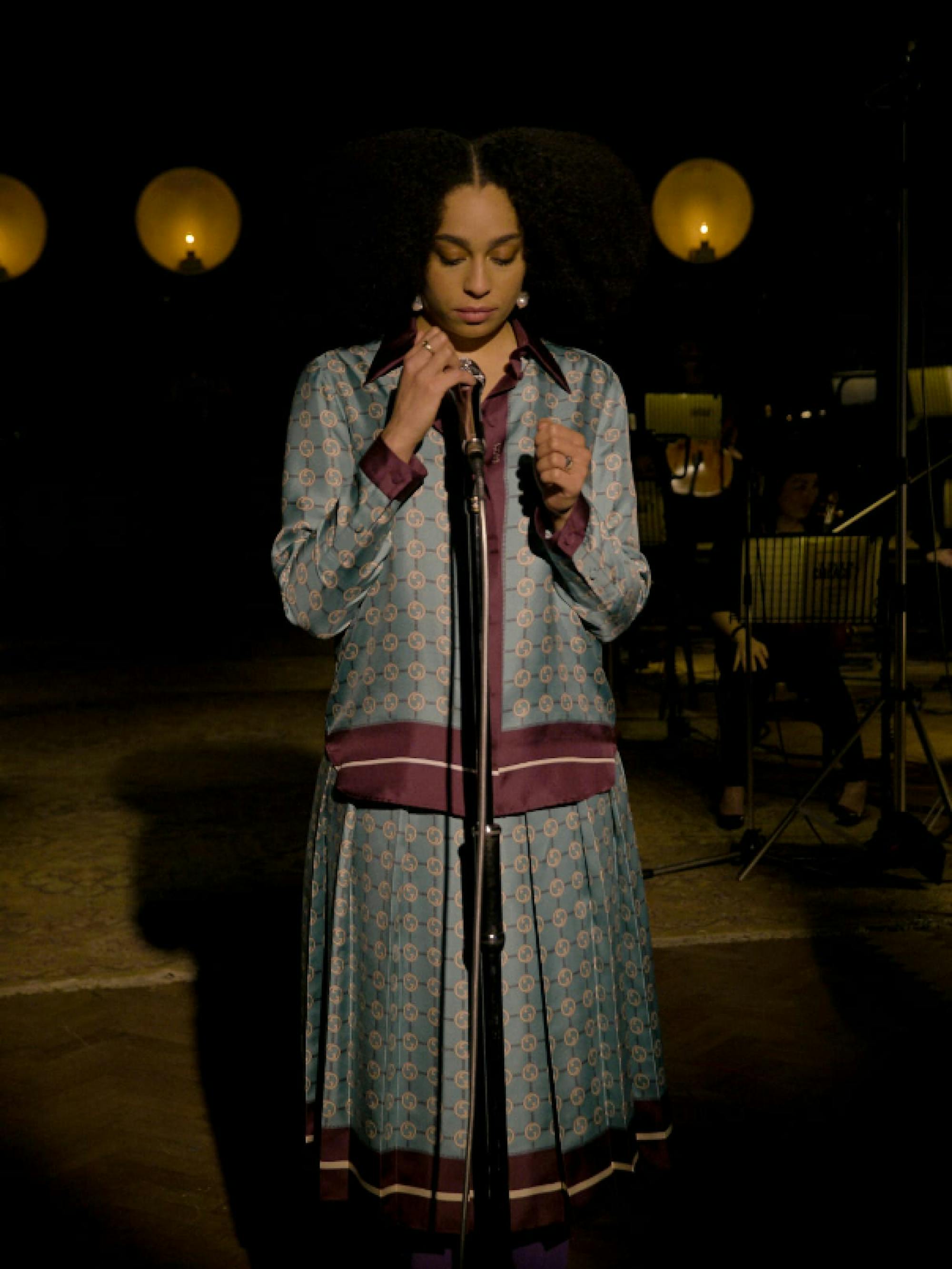
Elton John: Tell me how you came to write this song. Did you know each other before you got together to write it?
Daniel Pemberton: No. It’s kind of crazy because we actually never met physically until we’d finished the song together. I was scoring the movie and I really thought we should have a song for it. I started something off — an idea, but it was only half an idea, just kind of the melody and the phrase. I already loved Celeste’s work. I think she’s such a great singer and one of those voices that comes along every now and again and it’s so special. As a film composer, you very often write these long, melodic lines. There aren’t a lot of contemporary singers I feel who can really do that. So I reached out.
Celeste: I was sitting at home during lockdown. I hadn’t spent much time outside of my house at all, and I got this message from Daniel through my manager to say, “Would you like to work on this soundtrack for the film The Trial of the Chicago 7?” Daniel and I just started speaking over text and over the phone a little bit. He’d already come up with the lyric “Hear my voice.” When I heard that from Daniel, I had an idea of how this song should feel. I started recording melodies and writing down little bits of lyrics at home, and I literally recorded the first vocal in my bedroom and in my bathroom, and then sent it to Daniel.
DP: And I’m trying to sell it to Aaron Sorkin. I’m sort of doing this slightly surreptitiously because he still wants the Beatles at the end of the film. Because we were so locked down, people couldn’t even go around Celeste’s house to record, so the first [recordings] were WhatsApp messages recorded in the bathroom, which weren’t at the high technical standards we needed. But then we got Celeste some microphones, and I did some online tech support and Logic sessions over Zoom.
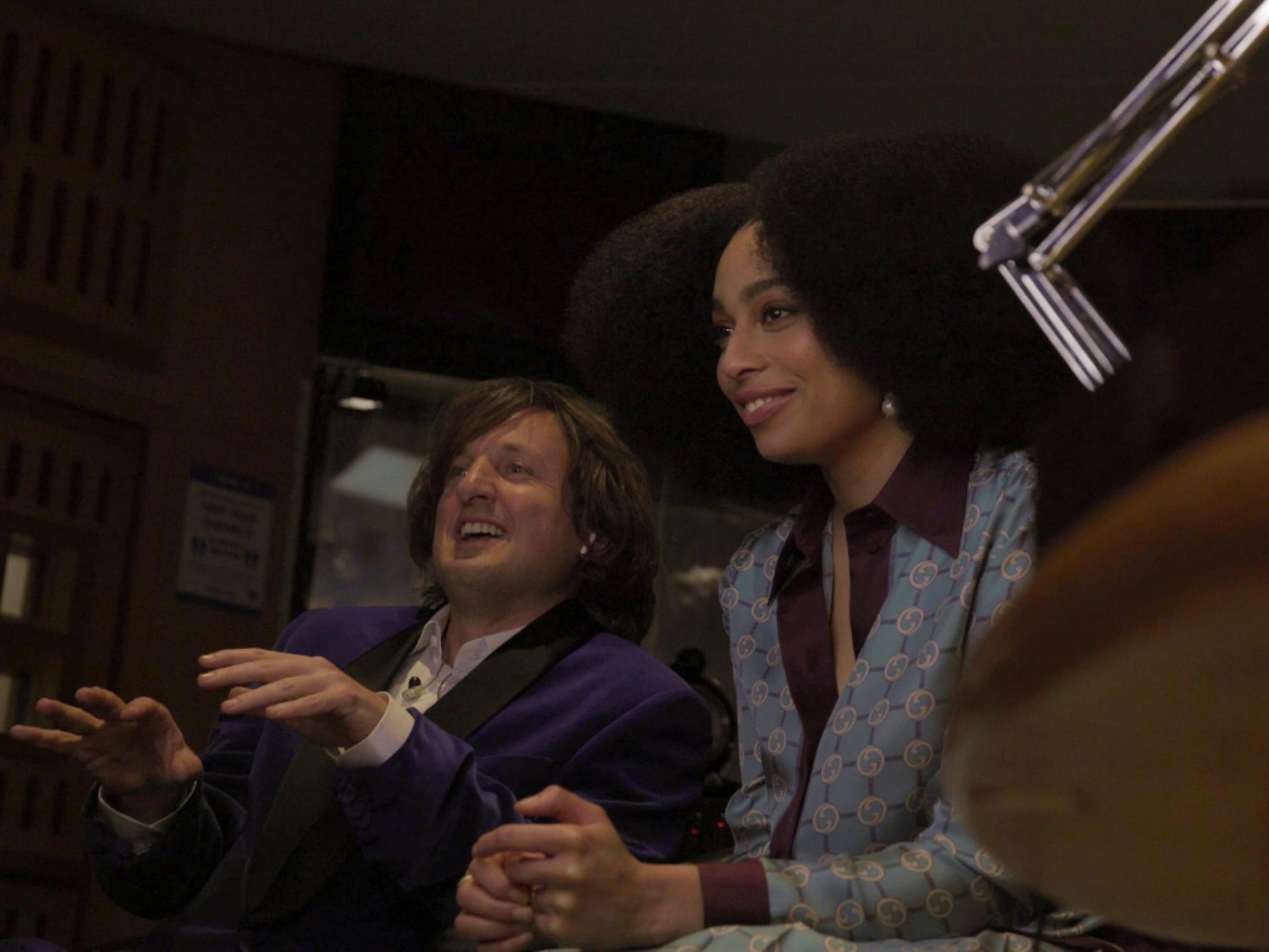
Well, out of chaos comes order, as they say. It is such a beautiful song. I mean, I really love the song. Had you seen the film when you wrote your part, Celeste?
C: I’d seen little bits of some of the parts that eventually my voice might be able to be on.
DP: When we were doing it, they were still finishing the film. I like to try and get involved quite early, while they’re still editing. I ended up reverse-engineering the melody because once I’d got that, I was like, This is how the film has to end. We’ve got to work this song all the way through the film.
It’s an impassioned song, but it doesn’t come at the end and hit you straight in the face with anger. It’s a beautiful, wistful kind of song about, What do we do now? Where do we go from here? It was so beautiful to hear something so poignant after seeing something that set your emotions on fire. Were you happy when you saw it all together?
DP: First of all, thanks so much for saying that. So much of that was Aaron Sorkin’s vision. He wanted there to be a sense of hope and optimism that would actually empower people to try and do things, rather than just feel you can’t beat the system. The film is really tough, and I think that he wanted that release of hope at the end. I tried to write the score so it was all about this moment when Celeste comes in.
There’s only one person I thought I could work with on this, and she’s here.
Daniel Pemberton
And Celeste, when you heard it all back, you must have been very happy with the way it turned out. It’s very hard to write a song when you’re writing for someone else’s vision. This is writing for Aaron Sorkin’s vision.
C: I think that when you’re writing for yourself, all you really have to connect to are your own feelings and your own narrative, and you kind of let that come out naturally without overthinking. Something that I could really relate to within this piece of music and within the story that the film is telling is seeing that injustice which you still see playing out in today’s society. That’s how I found my way within it and connected to my own emotion. It wasn’t until I saw it wrapped up in the whole picture that I really felt the potential significance and poignance that this song could have.
When did you actually write the song?
DP: Well, the weirdest thing about this project is we wrote it before the world changed, so to speak.
C: It was April of last year.
DP: We were going back and forth with it, and we were trying to write this song about the events of the film, which are basically the ’68 protests. How do you encapsulate everything in the film into a really simple idea? I got lucky because I just thought, This film is about democracy and protest. Why do people protest? Because they’re not being heard. “Hear my voice!” Suddenly, it’s like, Shit, that’s really simple and powerful. So you write this song, and then by the time we finish it, the world around us has changed.
C: We’d seen people take to the streets. It started happening in front of us.
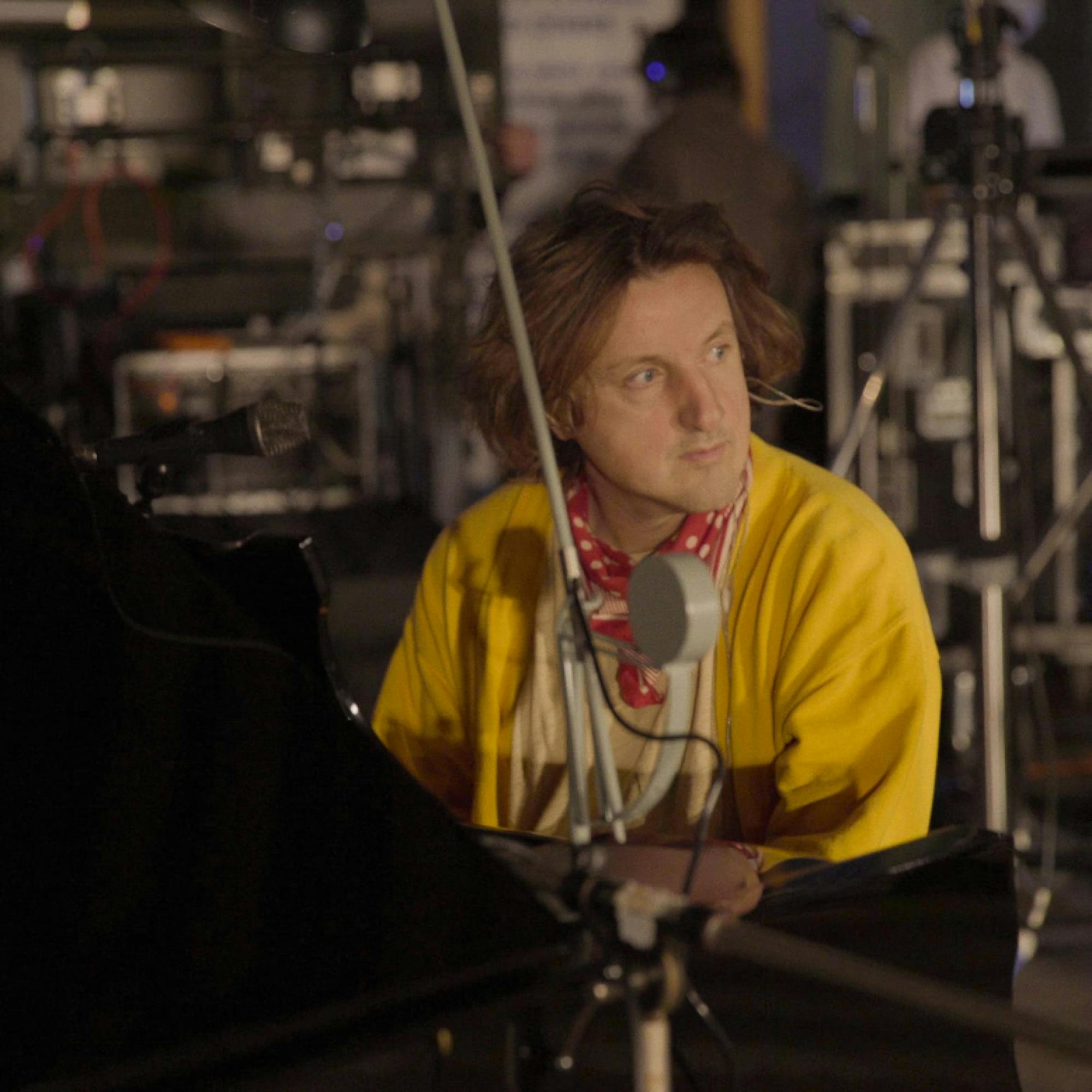
Celeste has the perfect voice for this song. It’s such a beautiful, gentle, but soulful voice. Did you know about her before you did this song?
DP: Yes! The thing that has been so great about this was she was my first — well, my only choice. I had no other choices. It was kind of like I’ve gotta get Celeste or I’m screwed. It’s quite hard to find the right voice and the right tone and the right person. I guess it’s like casting a film in some ways. There’s only one person I thought I could work with on this, and she’s here.
C: Thank you!
Celeste has this incredible voice that reminds me of Billie Holiday and a bit of Minnie Riperton. It’s just unique. The head of my record company introduced me to Celeste a long time before her record came out, and I absolutely fell in love with her. I think a lot of people who don’t know you are going to say, Who is that singer? because the song is so powerful at the end of the film. Usually I walk out during the credits. My husband and I just sat there and watched the whole credits. The song was so haunting, it just rounded out the whole visual experience perfectly. It’s a brilliantly classy, fantastic movie with a brilliant, classy, fantastic song.
DP: The weirdest thing for me was I wrote this whole score in lockdown with no physical interaction. I met up with Aaron Sorkin in a bar, once, in L.A. after the Golden Globes last year. We had a cocktail in the bar. I didn’t see anyone else, physically, during the entire production. I had to work at home the whole time. They organized a screening when we finished. I’d never seen it on a big screen, or heard it on a big screen, and at the end I was like, Fuck, that was amazing! I can’t believe I did this movie. I actually came out like, That was someone else’s movie that I had nothing to do with. I’d love to be the guy that did the music to that!
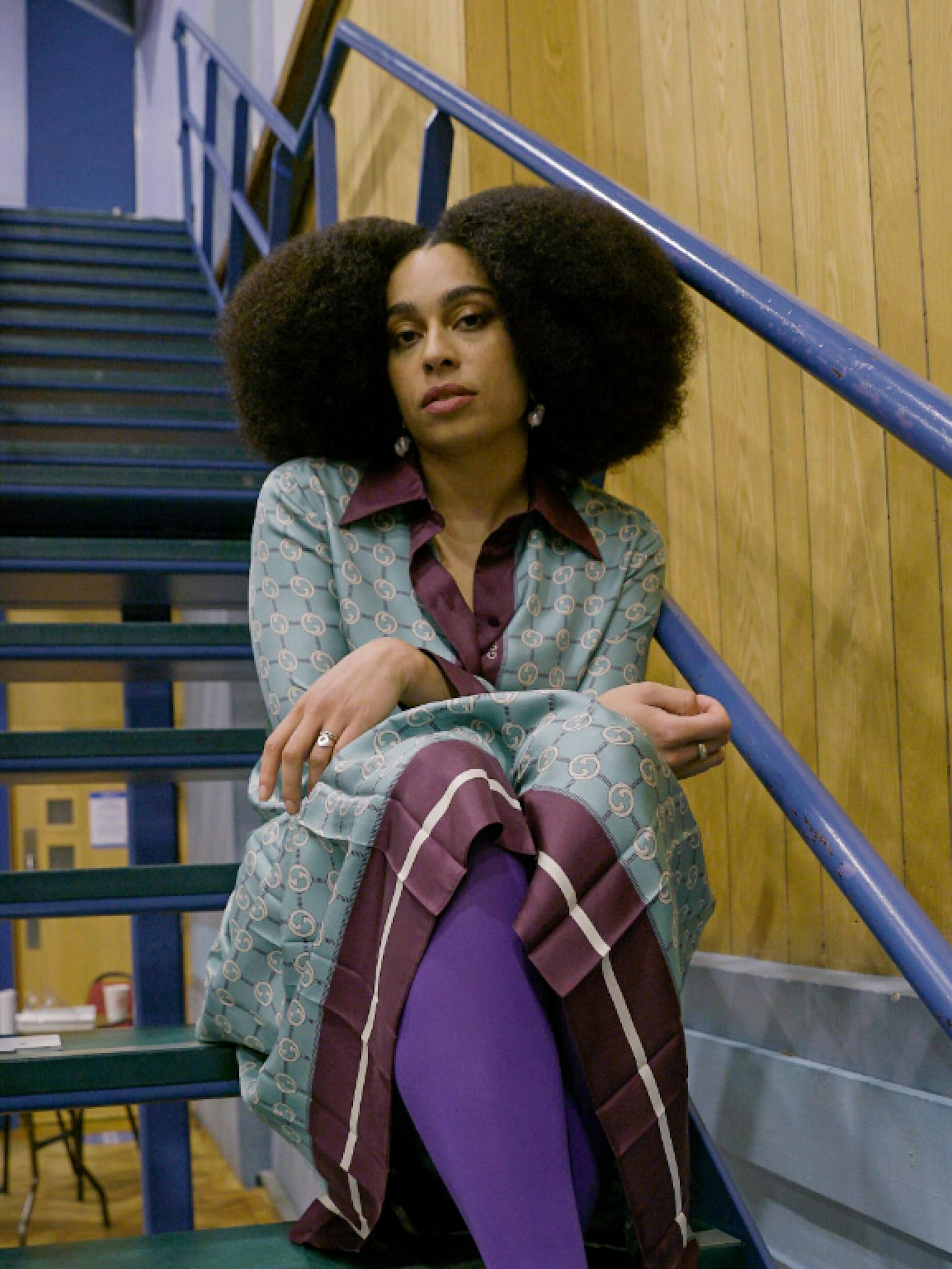
Celeste, it’s your first song for a movie, and you’ve hit the mark straightaway. Sometimes you can write a great song for a film, and the film is dire. I’ve done that. And I’ve written something dire for a film that’s great. But to actually hit this mark? For a young artist like yourself, you must feel this has given you confidence.
C: It’s definitely quite a daunting idea, especially when you have so many great examples — across all different sorts of films — of pieces of music that you really admire and look up to. It was something that I’d always wanted to do, to sing a song that would go over a film. I just felt really honored and flattered to be trusted at such an early stage in my career.
DP: Her voice is so spectacular and it’s so lovely to write for. I’ve been sitting here getting goosebumps from listening to this song I’ve heard a million times. I would love to write more with Celeste.
It doesn’t often happen when you hear someone and you think, Oh, I’d love to work with her, and then you get to work with her, and it becomes such a successful outcome. I hope that you two can write together again. I’ve been writing with Bernie [Taupin] for over 50 years, and we don’t get in each other’s way — because I don’t allow him in the same room!
